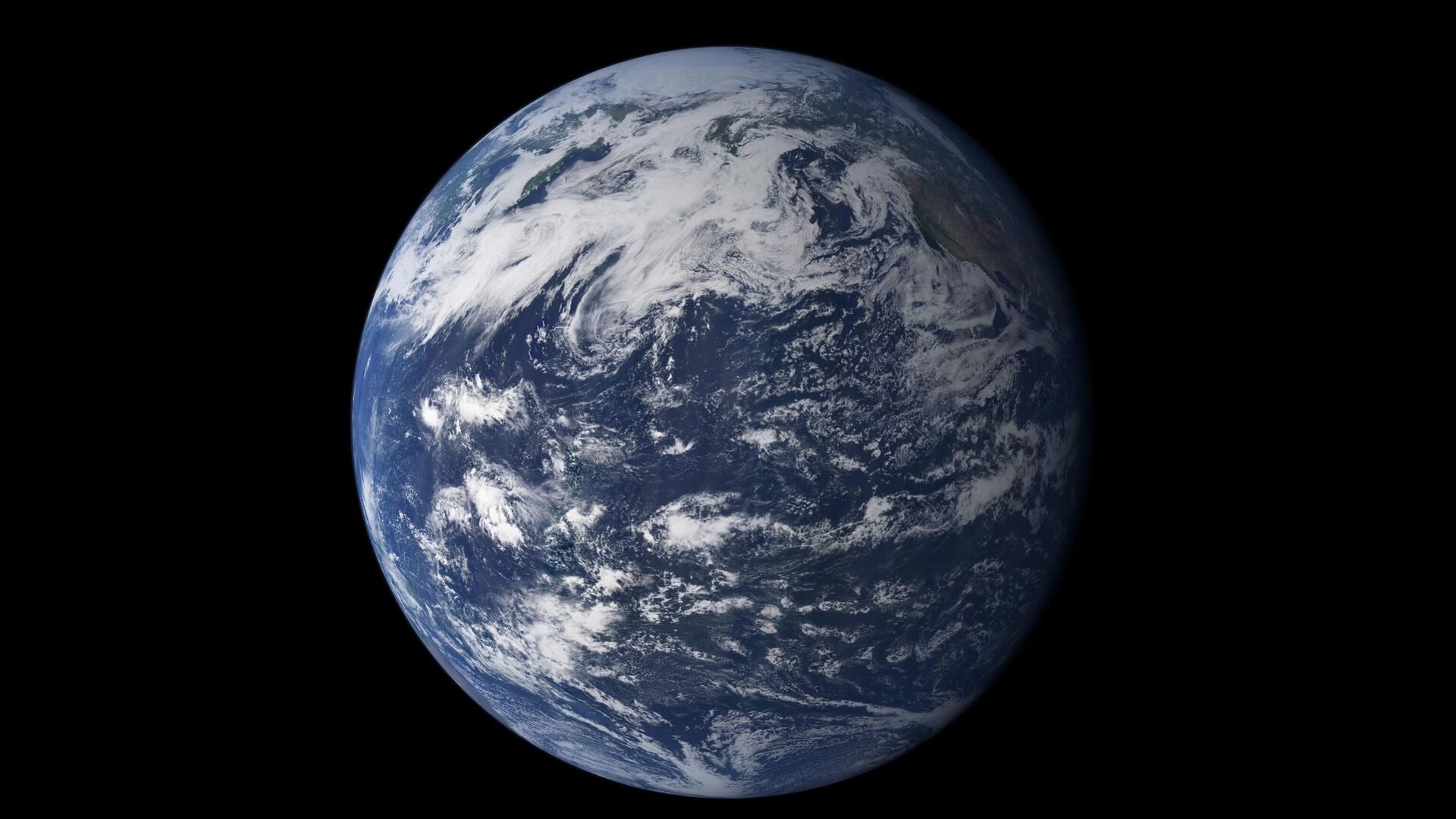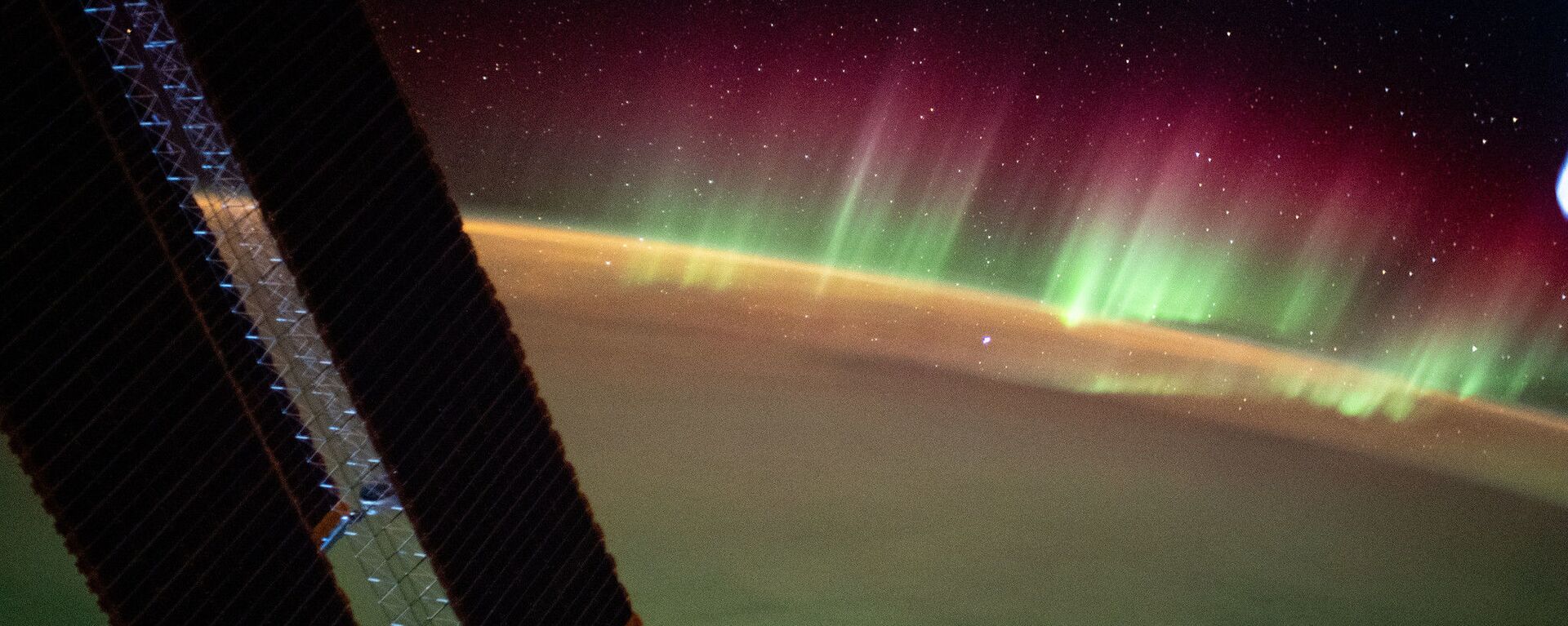https://en.sputniknews.africa/20230723/south-africa-wants-to-organize-two-women-astronauts-flight-to-iss-1060712981.html
South Africa Wants to Organize Two Women Astronauts' Flight to ISS
South Africa Wants to Organize Two Women Astronauts' Flight to ISS
Sputnik Africa
Roscosmos is the Russian state space agency, originating from the Soviet space program of the 1950s, which launched the Earth's first artificial satellite... 23.07.2023, Sputnik Africa
2023-07-23T15:27+0200
2023-07-23T15:27+0200
2023-08-03T10:50+0200
south africa
southern africa
brics
russia
space
international space station (iss)
space exploration
sub-saharan africa
international
https://cdn1.img.sputniknews.africa/img/07e6/0a/1a/1056636711_0:133:3070:1860_1920x0_80_0_0_e7b31adbaeec3bf4e63a035cbe5879ca.jpg
South Africa wants to organize missions of two women astronauts to the International Space Station (ISS), the executive director of the South African National Space Agency Humbulani Mudau at talks with CEO of Russian state space company Roscosmos, Yuri Borisov.Roscosmos has announced its plans to boost its space partnership with African countries and sign appropriate agreements during the upcoming Russia–Africa summit in St. Petersburg from July 27-28.The Russian space corporation has participated in different international space missions, including the training of foreign astronauts and sending the first UAE astronaut, Hazza Al Mansouri, in October 2019 to spend eight days in space on Russian spacecraft Soyuz. Roscosmos also announced that a female Belarusian cosmonaut would join Russian cosmonaut Oleg Novitskiy and US astronaut Tracy Dyson on the Soyuz MS-25 spacecraft to the ISS in March 2024.During the talks, Borisov, in his turn, suggested Russia and South Africa will propose organizing a working group to create a joint monitoring system for near-Earth space at a forthcoming meeting of the BRICS space cooperation committee, a Sputnik correspondent reported.Mudau replied that a few years ago South Africa had already proposed a roadmap for cooperation, and the Russian proposal is critically important for the country because it is designed to ensure the safety of space traffic.To finance the creation of such a system, it will be possible to attract the BRICS Bank, known as the New Development Bank.Russia is currently developing the Milky Way global monitoring system for near-Earth space.Roscosmos executive director Aleksandr Bloshenko, who was also at the meeting in South Africa, declared that international rules regulating how countries launch orbital satellites and control their movements to avoid incidents on the orbit may be adopted within the next five years.Plans by spacefaring nations indicate that by 2030, the number of satellites in the Earth's orbit will exceed 100,000, Bloshenko said. The opinion that "space is big and there's room for everyone" is hardly valid because "overpopulation" of attractive orbits will soon lead to dangerous situations, he added.
https://en.sputniknews.africa/20230626/russia-to-sign-full-scope-space-agreement-with-african-countries-at-july-forum-1060168796.html
south africa
southern africa
russia
space
international space station (iss)
Sputnik Africa
feedback@sputniknews.com
+74956456601
MIA „Rossiya Segodnya“
2023
News
en_EN
Sputnik Africa
feedback@sputniknews.com
+74956456601
MIA „Rossiya Segodnya“
Sputnik Africa
feedback@sputniknews.com
+74956456601
MIA „Rossiya Segodnya“
south africa, southern africa, brics, russia, space, international space station (iss), space exploration, international
south africa, southern africa, brics, russia, space, international space station (iss), space exploration, international
South Africa Wants to Organize Two Women Astronauts' Flight to ISS
15:27 23.07.2023 (Updated: 10:50 03.08.2023) Roscosmos is the Russian state space agency, originating from the Soviet space program of the 1950s, which launched the Earth's first artificial satellite, Sputnik, and later brought the first human to space, Yuri Gagarin.
South Africa wants to organize missions of two women astronauts to the International Space Station (ISS), the executive director of the South African National Space Agency Humbulani Mudau at talks with CEO of Russian state space company Roscosmos,
Yuri Borisov.
"We would like to send two African women to the International Space Station in the coming years," Mudau noted.
Roscosmos has announced its plans to boost its space partnership with African countries and sign appropriate agreements during the upcoming Russia–Africa summit in St. Petersburg from July 27-28.
The Russian space corporation has participated in different international space missions, including the training of foreign astronauts and sending the first UAE astronaut, Hazza Al Mansouri, in October 2019 to spend eight days in space on Russian spacecraft Soyuz. Roscosmos also announced that a female Belarusian cosmonaut would join Russian cosmonaut Oleg Novitskiy and US astronaut Tracy Dyson on the Soyuz MS-25 spacecraft to the ISS in March 2024.
During the talks, Borisov, in his turn, suggested Russia and South Africa will propose organizing a working group to create a joint monitoring system for near-Earth space at a forthcoming meeting of the BRICS space cooperation committee, a Sputnik correspondent reported.
Mudau replied that a few years ago South Africa had already proposed a roadmap for cooperation, and the Russian proposal is critically important for the country because it is designed to ensure the safety of space traffic.
To finance the creation of such a system, it will be possible to attract the
BRICS Bank, known as the New Development Bank.
Russia is currently developing the Milky Way global monitoring system for near-Earth space.
Roscosmos executive director Aleksandr Bloshenko, who was also at the meeting in South Africa, declared that international rules regulating how countries launch orbital satellites and control their movements to avoid incidents on the orbit may be adopted within the next five years.
"One can assume that within five years international rules for space traffic, similar to air traffic, will be developed," Bloshensko said.
Plans by spacefaring nations indicate that by 2030, the number of satellites in the Earth's orbit will exceed 100,000, Bloshenko said. The opinion that "space is big and there's room for everyone" is hardly valid because "overpopulation" of attractive orbits will soon lead to dangerous situations, he added.


